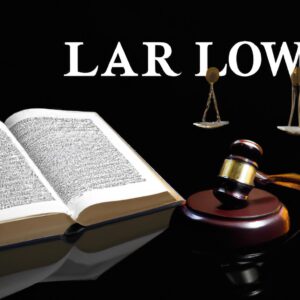
lifetime rights to a house
Lifetime rights to a house grant individuals the security of having a place to call home for the rest of their lives. It provides stability and comfort, ensuring that they can always have a roof over their heads.
Estate Law New York Page 46

Lifetime rights to a house grant individuals the security of having a place to call home for the rest of their lives. It provides stability and comfort, ensuring that they can always have a roof over their heads.

Have you ever wondered how much a trustee can charge for their services? Understanding the guidelines and regulations surrounding trustee fees is essential for both trustees and beneficiaries.

Imagine a world where the number of children per capita is used to measure a country’s prosperity. With this unique approach, we can gain a new perspective on the well-being of our society and the future it holds for the younger generations.

Changing a deed after death can be a complex process with legal implications. From ensuring proper documentation to navigating estate laws, it is important to understand the steps involved in transferring ownership posthumously.

Joint and mutual wills are legal documents that allow two individuals, usually spouses, to outline how their assets will be distributed after both of their deaths. This type of will ensures that both parties’ wishes are respected and can help avoid family disputes.

Setting up a discretionary trust can provide financial security and control for your loved ones. Learn how to establish this versatile estate planning tool to protect your assets.

In the absence of a will, the executor takes on the challenging task of distributing assets according to state laws. While they cannot play favorites, they must adhere to legal guidelines to ensure a fair distribution among beneficiaries.

When a beneficiary is listed on a financial account, such as an IRA or life insurance policy, they typically override any instructions in a will. It’s important to review and update beneficiary designations regularly to ensure your assets are distributed as intended.

Estate help is essential for managing the complexities of inheritance and property distribution. From legal assistance to financial planning, these professionals guide families through their estate needs with expertise and care.

When creating a will, it is essential to understand the witness requirements to ensure its validity. Properly chosen witnesses can prevent challenges to the will in the future.

Godspeed” is a term used to convey good wishes for a safe and prosperous journey. Dating back to medieval times, it reflects the belief in divine protection during travel and the hope for a successful outcome.

Entering the world of probate can be a daunting task, especially when a loved one has passed away. But what happens if they have a will? Do you still need to go through probate? Let’s explore this question to uncover the truth.

In times of loss, finding the right words to say can be challenging. Expressing heartfelt condolences and offering support can provide comfort to those grieving. Simple phrases like “I’m here for you” or “I’m thinking of you during this difficult time” can make a world of difference.

Are you looking to remove someone’s name from the title of your house? Whether it be a divorce, inheritance dispute, or simply wanting to update ownership, it’s important to follow the necessary legal steps. Here’s what you need to know.

The individual who delivers a eulogy at a funeral is known as the speaker. Their words have the power to honor the deceased and provide comfort to those in mourning.

Trustee job descriptions outline the duties and responsibilities of individuals entrusted with managing assets on behalf of others. These roles require a strong sense of ethics and commitment to the best interests of beneficiaries.

Probating a will in Georgia without an attorney may seem daunting, but with the right resources and information, it can be done. From filing the petition to distributing assets, follow these steps to navigate the process successfully.

Being named as an executor of a will is a responsibility that comes with important legal obligations. From managing assets to distributing belongings, the role requires careful attention to detail and a commitment to honoring the wishes of the deceased.

Have you ever wondered if executors get paid for their services? Let’s delve into the topic and find out the answer to this common question surrounding probate and estate administration.

Deeds come in various forms, each serving a unique purpose. From general warranty deeds to quitclaim deeds, understanding the different types of deeds is essential for ensuring a smooth real estate transaction.

When someone dies, dealing with the aftermath can be overwhelming. Use this checklist to help guide you through the necessary steps during this difficult time.

Contesting a will can be a complex and emotional process. From gathering evidence to hiring a lawyer, there are many steps involved in challenging the validity of a loved one’s final wishes. Understanding your legal rights and seeking professional guidance can help navigate this challenging journey.

Online trusts are becoming increasingly popular as a way to ensure security and privacy in our digital world. By creating a legal entity to manage your online assets, you can protect your data and digital legacy for future generations.

When dealing with the loss of a loved one, it can be overwhelming to handle the necessary tasks. Having a checklist of things to do when someone dies can help ensure nothing is overlooked during this difficult time.

The executor of a trust plays a crucial role in carrying out the wishes outlined in the trust document. From managing assets to distributing funds, their responsibility is to ensure the trust’s terms are fulfilled in a timely and efficient manner.

A corrective deed in New York is a legal document used to fix errors in a previously recorded deed. It provides a way to rectify mistakes and ensure accurate property records.

In today’s digital age, the process of transferring property ownership has become increasingly convenient with the rise of deed online services. With just a few clicks, buyers and sellers can securely execute deeds from the comfort of their own homes.

A codicil to a last will and testament is like a small addendum that allows you to make changes or additions to your original will without completely rewriting it. It ensures your wishes are carried out as intended.

When it comes to taxes on estate vs trust, there are key differences to consider. Understanding these nuances can help you make informed decisions about protecting and distributing your assets.

Per stirpes and per capita are two different ways of distributing assets in an estate. Per stirpes means dividing assets by branch of the family tree, while per capita means dividing assets equally among all beneficiaries. Understanding these terms is crucial in estate planning.